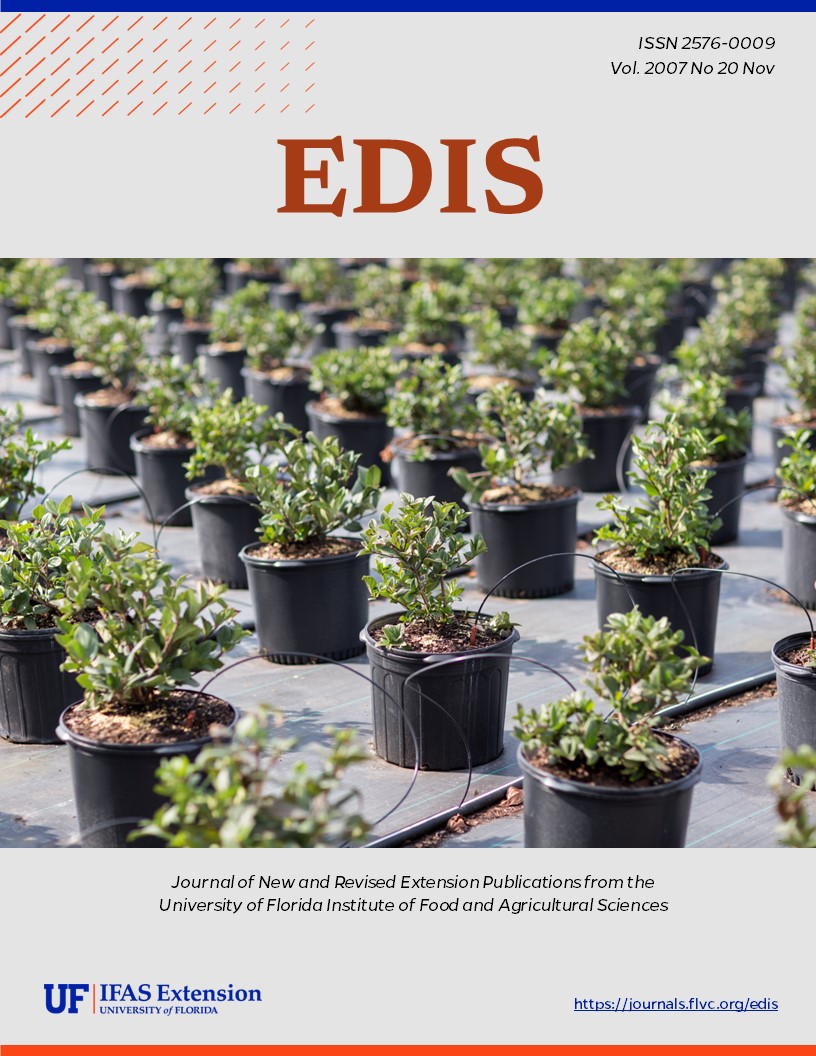Abstract
EENY-416, a 4-page illustrated fact sheet by Michael C. Thomas, is part of the Featured Creatures collection. It describes this day-flying scarab beetle common in Florida and the eastern U.S., its synonymy, distribution, identification, biology, hosts, pest status, and management. Includes selected references. Published by the UF Department of Entomology and Nematology, September 2007.
References
Casey TL. 1915. A review of the American species of Rutelinae, Dynastinae and Cetoniinae. Memoirs on the Coleoptera 6: 1-394.
Cherry RH, Klein MG. 1992. Attraction of adult Euphoria sepulchralis (Coleoptera: Scarabaeidae) to aromatic compounds. Florida Entomologist 75: 383-385. https://doi.org/10.2307/3495861
Fabricius J. 1801. Systema eleutheratorum, Vol. 2. Kiliae, 687 p.
Hayes WP. 1925. A comparative study of the life-cycle of certain phytophagous scarabaeid beetles. Kansas Agricultural Experiment Station Technical Bulletin 16: 1-146.
Landolt PJ. 1990. Trapping the green June beetle (Coleoptera: Scarabaeidae) with isopropanol. Florida Entomologist 73: 328-330. https://doi.org/10.2307/3494817
Ratcliffe BC. 1991. The scarab beetles of Nebraska. Bulletin of the University of Nebraska State Museum 12: 1-333.
Ritcher PO. 1945. North American Cetoniinae with descriptions of larvae and keys to genera and species (Coleoptera: Scarabaeidae). Kentucky Agricultural Experiment Station Bulletin 476: 1-39.
Spencer JA, Jarratt JH. 1989. Euphoria sepulchralis (Coleoptera: Scarabaeidae) damage to rose (Rosa) flowers in Mississippi. Journal of Entomological Science 24: 7-8. https://doi.org/10.18474/0749-8004-24.1.7

